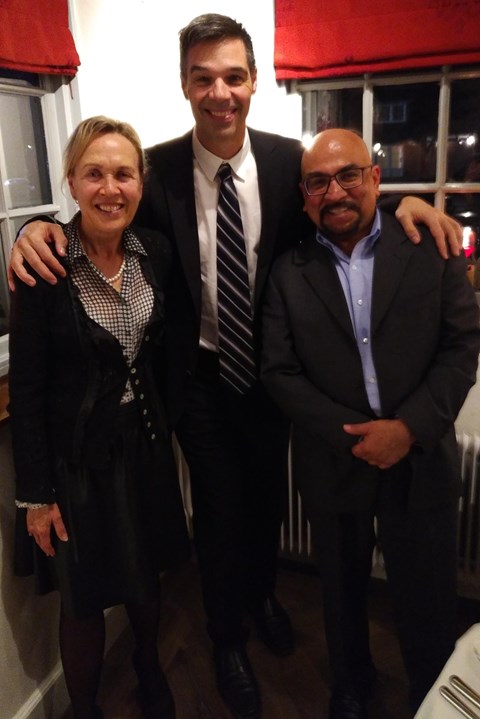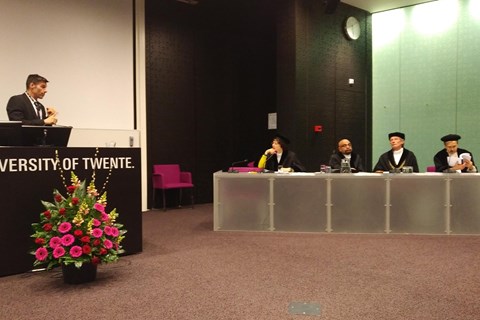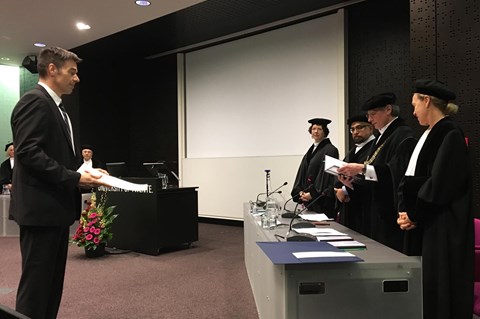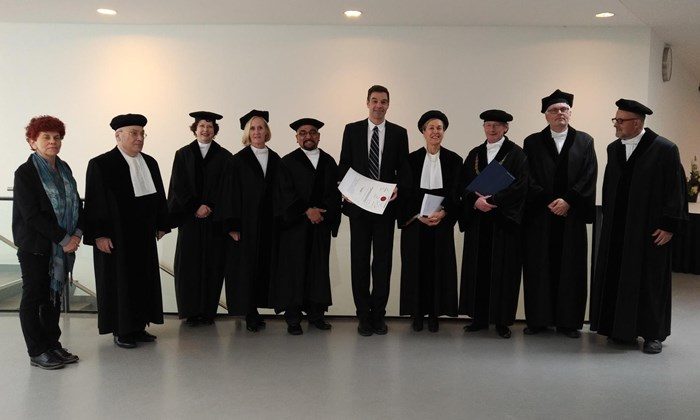François Héon
DISSERTATION TITLE:
A Study of The Yin and Yang Model of Leadership for Individual and Collective Leadership Development
University of Twente
March, 2018
by François Héon
Using the Yin and Yang Model of Leadership, this research engaged in embedded action research by studying feedback from 2,277 leaders in Canada and France who experienced the Yin and Yang Model in the context of leadership programs between 2008 and 2015. The Yin and Yang Model of Leadership builds on Mary Parker Follett’s notion of leadership as a process of integrating both intrapersonally and interpersonally while proposing intentionality and appreciation as its two complementary and integrative factors. These two complementary factors summarize the long standing bidimensional factors found throughout the leadership literature; psychology; and ancient philosophies. Leadership theories have continued to abound since the early 20th century and leadership scholars have increasingly called for integrative strategies and multilevel models that can address leadership development from an individual level as well as from a relational level. Three complementary studies of 52 individual and collective leadership development interventions, using the multilevel Yin and Yang Model of Leadership, with appreciative (yin) and its intentional (yang) principles as the underlying framework, were conducted by the author. The results from all three studies strongly support: (a) the model’s multilevel accessibility for leadership development at the individual, dyad, group and organization levels; (b) the use of appreciation and intentionality as two complementary and integrative leadership factors; and (c) the easy application and re-application of the model by participants from all walks of life. These results call for more research on each of the two principles as generative leadership attitudes, their interrelated dynamic as a guiding model for self-mastery and self-leadership, the applications to groups and collective leadership development, and the model’s general accessibility. The implications of this research are numerous, from the development of a new multilevel and integrative leadership model to introducing two new bidimensional and interdependent factors that speak to most contemporary theories of leadership (a) transformational leadership; (b) emotions and emotional intelligence; (c) authentic leadership; (d) shared leadership; (e) ethical leadership; (f) organizational justice; and (g) complexity and contextual approaches. Possible limitations of this research are (a) its embedded practitioner method and the possibility of positive-feedback bias, due to social conformity concerns from clients; (b) the possible reductive effect of using only two factors to describe a complex phenomenon such as leadership; and (c) the possibility of cultural specificity in terms of the proposed egalitarian perspective of leadership would also require further research internationally where hierarchy and power distance can be greater.




